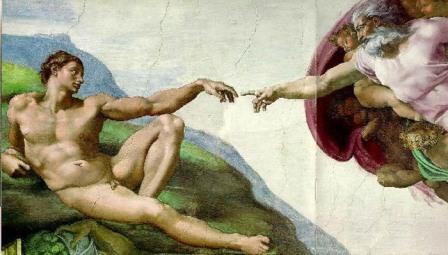|
Overcoming Barriers to Faith
in Christ
|
Some suggest that all religions are born of the same worldview and teach the same perspective. While there are common elements in the questions asked of reality by various religions and philosophies, most who look below the surface of those views recognize the view that "all are the same" is simply not the case. For example...
Atheism: is a worldview most common in the west developed by those rejecting the Gospel. As such atheism devalues not only God but also those formed in His image. But atheism's roots are not primarily scientific or intellectual. more...
Animism: is the view that spirits exist all around us requiring us to sacrifice to and negotiate with these spirits to keep them from working against us.
Paganism: gives names to some of these spirits and worships them. Augustine, in the first two books of his City of God, responds rather fully to the system of gods developed by the Greeks and Romans of antiquity, the revival of which some seek today. Consider also...
"I would prefer even the worst possible Christian world to the best pagan world, because in a Christian world there is room for those for whom no pagan world ever made room: cripples and sick people, the old and the weak. And there was more than room for them: there was love for those who seemed and seem useless to the pagan and godless world." - Hendrich Boll (1917-1985)
Secular Humanism: attempts to value humanity while rejecting God. One who examines this question and shares why he finds the Gospel more satisfying is Gilbert Keith Chesterton, who wrote Orthodoxy in response to a challenge from his opponents. C.S. Lewis was one who turned to Christ upon reading Chesterton's analysis. The book is now in the public domain and available in PDF or RTF. But secularism has no basis for making moral judgements either at the personal or social level. Ironically it desires to be utopian. In this internal contradiction secularism inevitably sets up the state as god, a state which bides no other loyalties and invariably forces the Gospel out of the public square or, more often, underground or into the ground. While I don't have the book on this site I would encourage you to access a copy of Peter Hitchens's book, The Rage Against God: How Atheism Led Me to Faith, Zondervan, 2010. 219 pages. ISBN: 978-0-310-41259-5.
Religious Humanism: Not only does secular humanism reject the Gospel but so does one of it's step-children, religious humanism. Religious humanism is wrapped in liberal scepticism, seeks to throw out the supposed bathwater (a supernatural God), but invariably goes further. J. Gresham Machen examines theological liberalism and finds it not only wanting but another worldview altogether. Please download Christianity and Liberalism, in PDF or RTF.
Hinduism: Another important perspective, from a radically different context, is Vishal Mangalwadi who came to Christ in India after exploring and comparing the alternatives. Please consider Mangalwadi's Truth and Social Reform (available here in PDF or RTF) or his Truth and Transformation: a Manifesto for Ailing Nations. Seattle: YWAM Publishing, 2009. To better understand Yoga, please click here. For the view of prominent Hindus on Jesus, please click here.
Islam: Many of our Muslim friends are also asking foundational questions. I invite you to click here.
Judaism: Some Jewish friends view their Jewishness as counter in some way to following Jesus as Messiah. Yeshua however is no contradiction to the faith of Abraham and Moses in Yahweh. David was a good Jewish friend and follower of Jesus. No one I know was more firmly a Jew or more firmly a follower of Yeshua. Please reflect on his view, brief expressed, here.
Comparative Religion in brief: this parable of "a man who fell into a hole" depicts our need of Savior in the context of world religions. Watch the 3 minute parable in small or right-click and "save as" the large version.
But most importantly, please consider the wonderful uniqueness of the saving grace of Christ and the Gospel in some detail - here.

